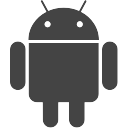 Desktop Notifications for Android
Desktop Notifications for Android
Published by Dominik Weber on .
Desktop Notifications has been discontinued on February 28, 2019.
All good things come to an end. Desktop Notifications was initially created as a student project in 2012. Since then, the app has been downloaded almost 600,000 times and billions of notifications were sent to desktops around the world.
- Why is this happening? Last year, multiple things came together that eventually led to our choice to discontinue Desktop Notifications. The human-computer interaction group at the University of Stuttgart split and moved to the University of Munich and the University of Regensburg, with only a few people remaining in Stuttgart. Additionally, Google announced the plans to discontinue Google+ for consumers (including the Google+ APIs) and Google Cloud Messaging (GCM), the latter which powers the actual distribution of push events. While replacements for the Google+ sign-in and GCM exist, switching to them would require a complete rewrite of most components of Desktop Notifications.
- What will happen? We will roll out final updates for the Android app and Chrome extension. The updates will remove all functionality from the app/extension and will allow you to uninstall them with a single click. Server-side account and device data will be deleted. You can optionally revoke the Google account authentication by visiting this page. If you have questions, please feel free to contact us at [email protected].
Thank you for using Desktop Notifications.
The hciLab team
Alternative Apps
Please find a list of alternative apps and services below (listed in alphabetical order). We are not affiliated with any of these services.
Looking back...
Timeline
- November 2012
Initial release of the Android app in the Google Play Store with support for Android 2.2 - 4.0.
Initial release of the Chrome extension in the Chrome Web Store. - July 2013
Desktop Notifications is featured on Lifehacker.
Support for Chrome's Rich Desktop Notifications and the Notification Center. - August 2013
Initial release of the Firefox add-on.
Support for the Android Notification Listener API on Android 4.3+. - May 2014
The paper "Large-Scale Assessment of Mobile Notifications" (PDF) is presented at the SIGCHI Conference on Human Factors in Computing Systems (CHI 2014). - October 2014
Desktop Notifications is featured in the German computer magazine c't (circulation ~330,000). - Fall 2014
Development of "version 2":- Connecting devices with a single click using Google account authentication.
- Switch to using Google Cloud Messaging (GCM) in the backend to deliver push events.
- Support for synchronizing notifications between Android devices.
- Support for dismissing notifications across all connected devices at once.
- Spring 2015
Full roll-out of "version 2".
Redesign of the Android app according to the Material Design best practices. - 2017
The Android app passes 500,000 downloads in the Google Play Store. - 2018
Google announces the deprecation of Google+ and Google Cloud Messaging (GCM).
The hciLab group at the University of Stuttgart splits and moves to the University of Munich and the University of Regensburg. - February 2019
Desktop Notifications is discontinued.
Multi-Device Demo
CHI 2014 Publication
Statistics
Push events handled
since 2015 (v2)
Signed-in Google accounts
since 2015 (v2)
Google+ community members
Updates Released between 2012 and 2018
 56
56 85
85 17
17User Ratings out of 5 stars
 4.3
4.312,162 ratings
 4.2
4.21,148 ratings
 5.0
5.038 ratings
Acknowledgements
Desktop Notifications was developed and maintained by Dominik Weber. The project would not have been possible without the support of the University of Stuttgart, the SimTech Cluster of Excellence, and the hciLab group led by Prof. Dr. Albrecht Schmidt and Prof. Dr. Niels Henze. Special thanks go to Dr. Alireza Sahami Shirazi.
Future Updates
If you would like to be informed about new and updated apps related to Desktop Notifications for Android, please enter your email address and opt-in to receiving emails by selecting "Yes." You can also leave an optional comment. We will keep your email address confidential and promise not to spam you. You can edit your response after submitting the form.
University of Stuttgart · Imprint